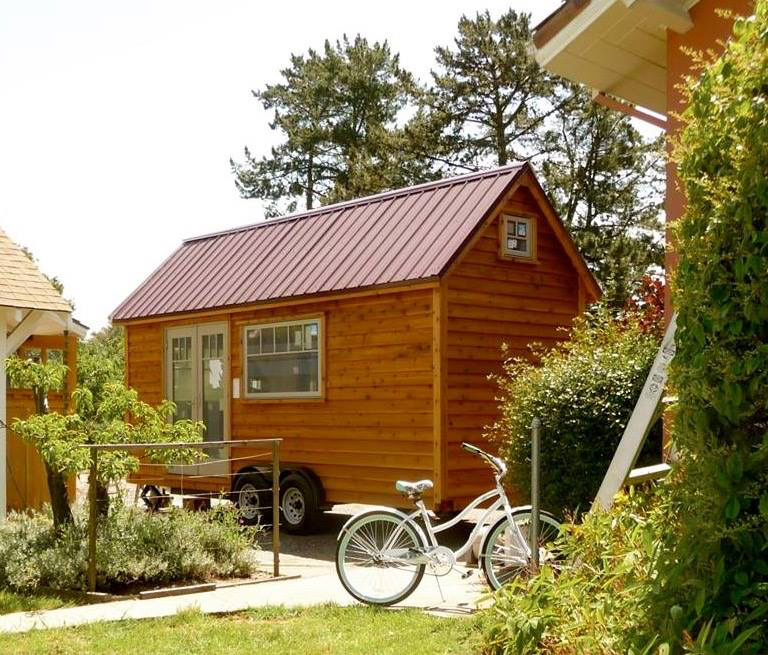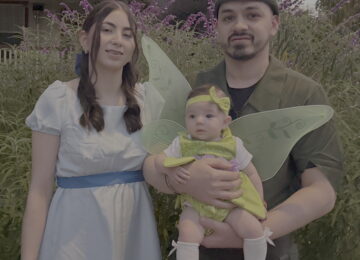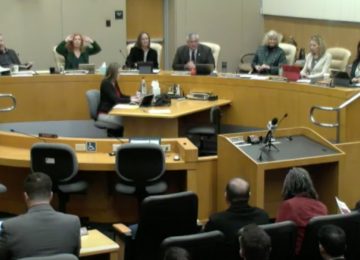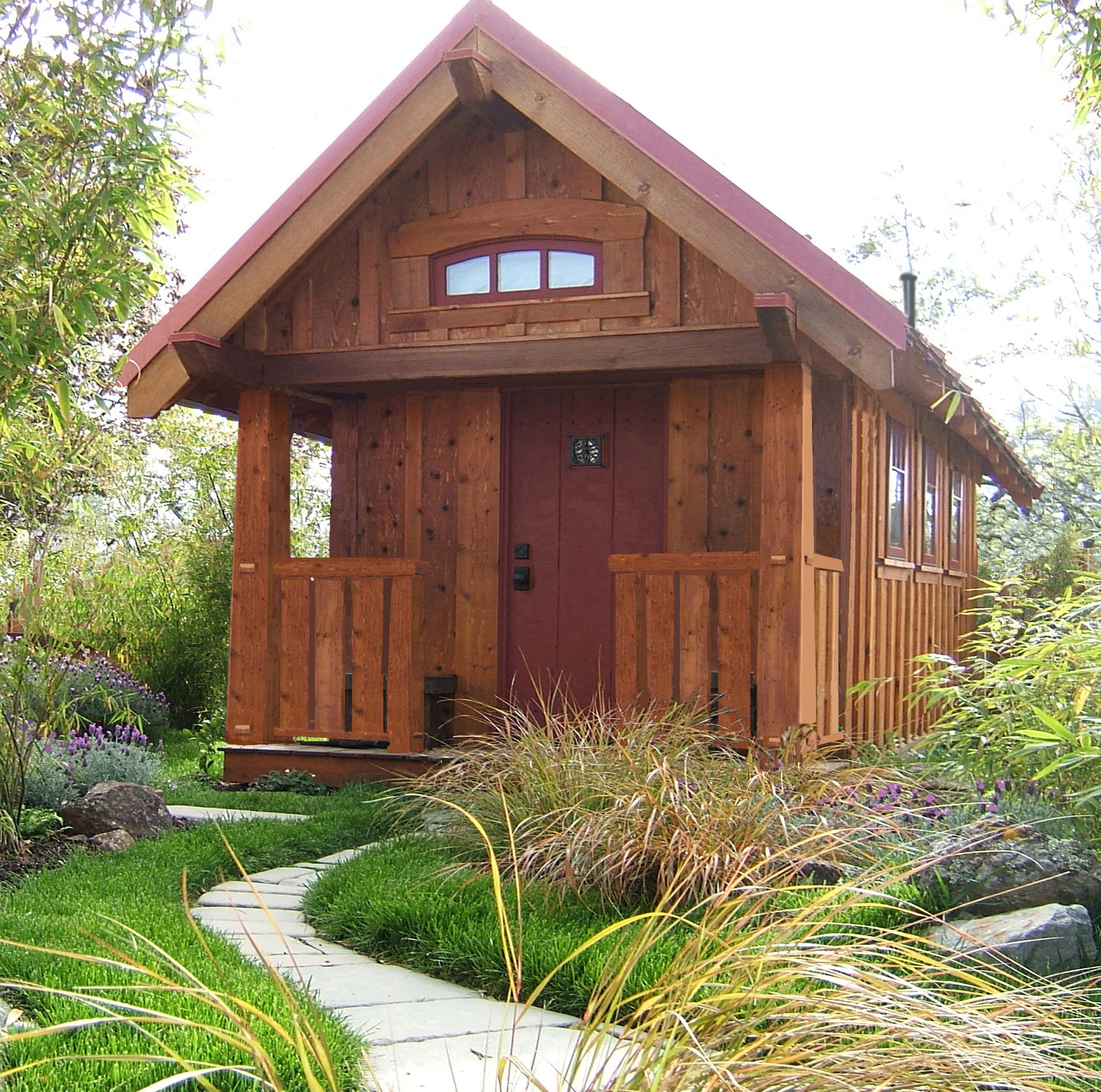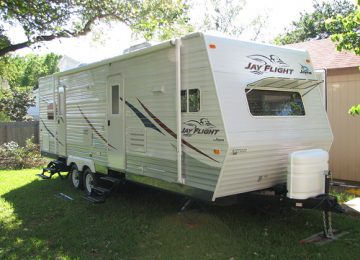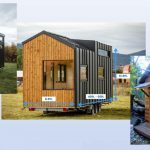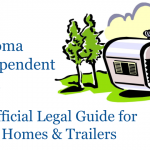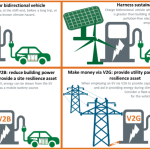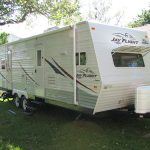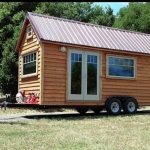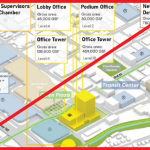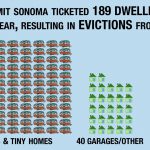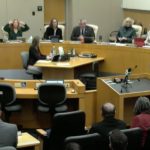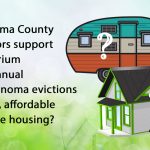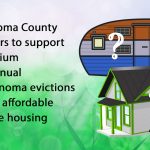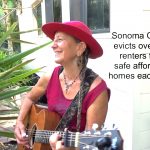In the past year, Permit Sonoma, the county’s code enforcement agency, has caused the eviction of about 200 low income alternative housing dwellers. Well over 90% of these residents are being removed from trailers, tiny homes and converted barns and made homeless for what government officials claim is their own “health and safety.”
During the Sonoma Independent’s three month campaign (with this petition signed by more than 3,000 people) , which was formed to change an inhumane policy that results in more people being made homeless each year than our County acquires housing for,
no government official has managed to explain how causing low income renters to live on the streets is safer than the affordable alternative housing they are being ordered to vacate by Permit Sonoma.
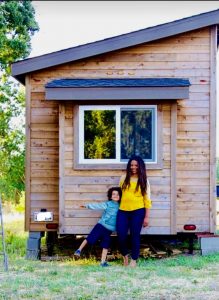
River, and her young son Asa, have legally lived in their Tiny House in Santa Rosa for close to two years. They had weathered through being houseless in Sonoma County for several months when River decided to fundraise for and build an affordable tiny home on wheels. The whole process, including building, permitting and installing infrastructure took around 15 months.
Santa Rosa zoning code allows virtually every property with an existing main house to host a Tiny House. After installing water, sewer and electric connections, River moved her finished house onto a residential property where she and Asa now live amongst fruit trees and a vegetable garden. River and her hosts have managed to provide a safe, legal, affordable housing unit in Santa Rosa which did not cost the city one penny.
On the other hand, sadly, Tiny Houses are still illegal in unincorporated Sonoma County except under a narrow zoning code section called “temporary use of a travel trailer” which allows them to be permitted only for caregivers, disabled, and some farm workers, and only if connected to septic, water and electric.
Sonoma County also recently extended, for one year only, emergency regulations that allow those displaced by the fires to live in a Tiny House or RV with a permit and with proper hook-ups to water, septic and electric. In officially designated Burn Areas, RV holding tanks and clean out contracts are allowed due to some septic systems still not being operational.
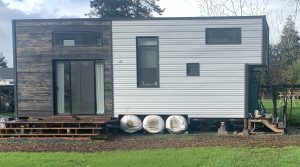
Jayne, who is semi-retired, decided to build a Tiny House in order to create a financially sustainably retirement and be closer to family. Having lost her mother and her sister in LA she built her Tiny House on her brother’s property while working with the county on getting the proper permits. The process progressed well and it wasn’t made clear until after her house was completed that her location doesn’t qualify her for a septic or sewer connection. Jayne knew that the county had been involved in composting toilet pilot projects for some time and she has now been waiting for almost three years to be allowed to pull a permit for a waterless toilet so that her permitting process can move forward.
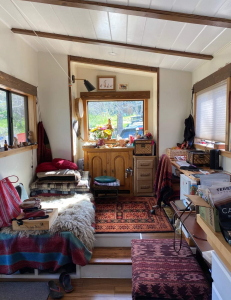
Copper Saso has been helping to lead the Sonoma Independent’s Stop All Government Evictions (SAGE) campaign to pressure county supervisors to reform our antiquated permit system. Although the county does allow the use of alternatives to septic in the Burn Areas, there are no alternatives permitted to conventional septic allowed in the rest of the county.
Despite our life-threatening housing crisis and the ecological disasters brought on by climate change, the Board of Supervisors have thus far refused to support the ongoing legal use of Tiny Houses and RVs in the county. Permit Sonoma continues to red tag and cause the eviction of hundreds of alternative housing dwellers per year simply because our zoning and building codes have not been brought up to date to include safe and affordable alternatives.
For example, both Copperwoman and Jayne are being threatened with homelessness next month due to code requirements which disallow waterless toilets. The county has conducted pilot projects for waterless toilets for over 13 years and language allowing them has long been in place in building/plumbing code Sec 21.1 – 21.4.
In order to remedy this situation the Board of Supervisors simply needs to vote to lift the current code language which unnecessarily requires flush toilets and let the existing waterless toilet language fall into place. (See Sonoma County Onsite Waste Treatment Systems Manual, OWTS, for details.)
At a Board meeting in mid-December, Supervisor Lynda Hopkins, the board’s only champion of alternative affordable housing, proposed that these issues and an eviction moratorium be placed on the agenda early this year.
On January 22nd, the Board of Supervisors will be meeting to set agendas for the entire upcoming year of meetings. Our grassroots campaign, which this writer has joined, is asking supporters of affordable housing to call their supervisor at (707) 565-2241, and urge her or him to place a moratorium on the cruel and senseless evictions on the agenda in February. In addition, we are asking them to agenda-ize a second meeting later this year to vote for longer term housing code changes like composting toilets that would allow permits for people living in safe, affordable alternative tiny homes and trailers.
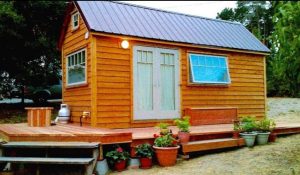
Personally, I’ve resided in Sonoma County since 1990. By 2010, I knew that I would not be able to keep up with the cost of rent here, so in 2012 I bought the shell of my Tiny House. By Jan of 2013 my house was completed and it was certified as an RV. I then legally lived in my house for the next five years under a “temporary use of a travel trailer” caregiver permit, just outside of Petaluma city limits.
In 2020 I moved my Tiny House to an incredible spot on the Willamette River near Eugene – as my daughter and grandkids had moved there. But my daughter is starting nursing school at SRJC, this month, so last month I moved my little house back to Sonoma County to help her with the children ages three and four.
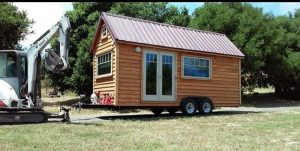
My Tiny House is currently in storage in Petaluma because of the very limited availability of hookups here in the county. I’m currently looking high and low for a place to land my house as with my limited income I cannot afford market rents here.
In Santa Rosa, every lot is allowed to add hookups and host a Tiny House, but in the county the zoning for Tiny Homes and RVs is restricted to their use by caregivers, disabled, farm workers and fire victims.
In fact, MOST of the RVs that people live in in Sonoma County are lined up along our streets and are not connected to any utilities at all. These units, are posing a REAL health and safety hazard in our communities.
If the county could allow each property to legally host a Tiny House or RV, and if each property owner was allowed to charge affordable rent for an RV space and utilities – we could clean up our streets and greatly reduce the health and safety hazards of having folks living in cars and RVs with no access to electricity or bathrooms.
In Eugene the city allows each property to host a Tiny House, an RV, a car or a tent so that the homeless can have a chance to hook up to electric and maybe use a bathroom in a home instead of relieving themselves on the streets. (I’m not suggesting we should do this.)
Sonoma County already has zoning code which allows a small number of low income residents to live in Tiny Houses and RVs if a yearly permit is pulled and the unit is hooked up to electric, water and septic. (Chapter 26 – Sonoma County Zoning Regulations A; and, Article 88 – Sec. 26-88-010 (P) – Caregiver or Disabled Person: Residential Use of a Travel Trailer or RV).
These provisions really need to be expanded to allow this affordable housing alternative for every person who needs it.
In addition the county needs to finally approve the use of waterless toilets, enact useful gray water code (can of worms – yep) and approve RV tank clean out contracts throughout the county. There are many locations where the use of septic is limited and not financially feasible for providing low income housing. Let’s move forward on the 13 years of waterless toilets pilot programs. As reported here, this isn’t rocket science after all. If Humboldt and Mendocino Counties, and seven states, can legalize waterless toilets – so can we! Also, right now clean out contracts for RV tanks are not allowed to be used in lieu of septic connections, except in the Burn Areas. If they are safe in the Burn Areas – then how are they not safe elsewhere?
Sonoma County has thousands of antiquated and failing septic systems which can cost more than $70,000 each to bring up to code. In addition we have the drought and the other pressures of climate change which really call into question the use of water for flushing when waterless solutions are clearly available, viable and safe.
Currently, the county/state pays something like $300,000 per hotel room to house a homeless person plus around $25,000 a year per person for security and other services. Some of the state funding is also used for safe parking and RV hookups in parking lots etc.
But those of us who build and pay for our own tiny houses have received zero dollars from the state/county and we aren’t even asking for funding. We simply want to be ALLOWED to live legally in our Tiny Homes by renting a space on private property. We want to be ALLOWED to use safe and ecological waterless toilets if septic systems aren’t viable or affordable.
Wouldn’t it also be great to allow each property owner to monetize their property by allowing them to install hookups and rent out one space per acre?
What will it take for us to convince the Board of Supervisors support reforming our current code enforcement policies that last year moved 200 people from relatively safe trailers and tiny homes to an often life threatening homeless situation?
Doesn’t it seem clear that this inhumane and dysfunctional system needs to be reformed?
What evidence can the county cite to demonstrate that trailers and tiny homes are inherently less safe than living on the street in a tent or in a car?
Will the other four members of the board join Lynda Hopkins during the meeting of January 25 to support the scheduling of an agenda item early this year to consider a Permit Sonoma eviction moratorium while working on reforming code enforcement policy to permit safe, affordable, alternative housing?
Isn’t it time for Sonoma County to embrace safe and affordable housing options just like dozens of other California counties and cities have done?


